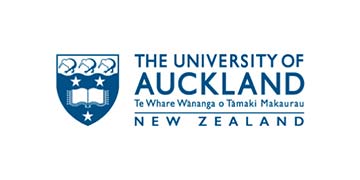University of Auckland: The law that failed the plight of ‘nobody’s child’
If there’s an example of a law that has singularly failed to meet the needs of a changing society, it is the Adoption Act 1955. The Act was passed to overcome the fact that children born outside marriage were illegitimate and described as filius nullius (nobody’s child).
In a time before contraception or the domestic purposes benefit, women who became pregnant faced a burden of shame that could only be lifted by handing over their child for adoption soon after birth. After the adoption the children became the child of the adopting parents “as if born to them in lawful wedlock”. The birth parents lost all legal connection. It was a total legal fiction which took all the responsibility for the child from the state and transferred it to the adoptive parents.
In 1955 adoptions were closed and secret with no provision for adopted children to find out about their birth parents. In 1985 the Adult Adoption Information Act was passed to enable adopted children from the age of 19 to have access to information about birth parents in certain circumstances but left it difficult to locate birth identity for those whose adoptions took place under the closed and secretive period.
For many years now, in practice, adoptions are done openly with birth parents knowing and choosing adoptive parents but there is no recognition of this in the 1955 Act and no legal protection for birth mothers who want to maintain contact with their child. Under the law, ‘nobody’s child’ had no right to learn about their heritage. Their birth family tree and whakapapa were erased. Today we know a person’s knowledge of their heritage and history is a key foundation for their health, wellbeing, and progress in life. Not so then.
Therefore, the Act has had a greater impact on Māori than Pākeha. In the 1950s, New Zealand was given to boast that the country had the best race relations in the world. At the same time, the broad policy of the state sought the assimilation of Māori and their culture and tikanga into the dominant colonising culture.
Whāngai, or Māori customary adoptions, were deemed to have no legal effect under the Adoption Act. Under tikanga, with whāngai, there was no cutting of ties between birth parents and parents who care for the child. The child never lost their whakapapa connection with whānau.
Through the Adoption Act 1955, many adopted Māori lost their whakapapa.
Initial public feedback was clear. Most people felt the adoption legislation has caused harm and needs to change.
In 2021, the Government began consultation on how to reform the adoption law. This has been long sought-after by many who have long recognised that the law is no longer fit for purpose in today’s world.
It has faced numerous challenges. Most notably the Human Rights Review Tribunal declared in 2016 that the Adoption Act was inconsistent with “the right to freedom from discrimination” under s19 NZ Bill of Rights Act 1990.
The list of inconsistencies is long. Males are not allowed to adopt females. Only married spouses can adopt. There is no recognition of same-sex couple adoption. And ‘mentally disordered persons’ have no right to be served notice if an application was made to adopt their child.
Finally, nobody under 25 can adopt a child. As noted, the real and perhaps most impactful discrimination was the lack of legal recognition of whāngai, making it hard for whānau to access public support for raising children.
The courts have delivered workarounds to these discriminations outlined in the act. De facto and same-sex relationships have been recognised. After more than 40 years, the 1997 Adult Adoption Information Act was passed to enable adopted children to have access to information about birth parents in certain circumstances. This has in practice meant that adoptions are done openly with birth parents knowing and choosing adoptive parents.
The Ministry of Justice concluded its first round of consultation on reform in August last year, and the initial public feedback was clear. Most people felt the adoption legislation has caused harm and needs to change. They said the law and process failed to ensure that the rights of the children involved were protected. Those rights included the child’s right to connect with their birth culture and the ability to have some say in what was happening to them.
Perhaps most telling, the public feedback said the current law fails to outline a clear purpose. And if there was to be a purpose, then it should be how adoption can be undertaken in the best interests of the child, their whānau and wider family.

